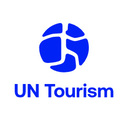UNWTO Launches A Call For Action For Tourism’s COVID-19 Mitigation And Recovery
The World Tourism Organization (UNWTO) has released a set of recommendations calling for urgent and strong support to help the global tourism sector not only recover from the unprecedented challenge of COVID-19 but to 'grow back better'. The Recommendations are the first output of the Global Tourism Crisis Committee, established by UNWTO with high-level representatives from across the tourism sector and from within the wider United Nations system.
Recognizing that tourism and transport has been among the hardest hit of all sectors, the Recommendations are designed to support governments, the private sector and the international community in navigating the unparalleled social and economic emergency that is COVID-19.
"These specific recommendations give countries a check-list of possible measures to help our sector sustain the jobs and support the companies at risk at this very moment. Mitigating the impact on employment and liquidity, protecting the most vulnerable and preparing for recovery, must be our key priorities," said UNWTO Secretary-General Zurab Pololikashvili.
Recognising the diverse realities in each country as well as the evolving nature of this crisis, the document will continue to be updated.
Preparing for recovery now
"We still do not know what the full impact of COVID-19 will be on global tourism. However, we must support the sector now while we prepare for it to come back stronger and more sustainable. Recovery plans and programmes for tourism willtranslate into jobs and economic growth." added the Secretary-General.
The Recommendations for Action are the first comprehensive set of actions governments and private sector actors can take now and in the challenging months ahead. Mr Pololikashvili stressed that "for tourism to fulfil its potential to help societies and whole countries recover from this crisis, our response needs to be quick, consistent, united and ambitious".
Responding today and preparing for tomorrow
In all, this new guide provides 23 actionable recommendations, divided into three key areas:
-
Managing the Crisis and Mitigating the Impact: Key recommendations relate to retaining jobs, supporting self-employed workers, ensuring liquidity, promoting skills development and reviewing taxes, charges and regulations relating to travel and tourism. The Recommendations are made as a global economic recession looks likely. Given its labor-intensive nature, tourism will be hard hit, with millions of jobs at risk, especially those held by women and youth as well as marginalised groups.
-
Providing Stimulus and Accelerating Recovery: This set of Recommendations emphasises the importance of providing financial stimulus, including favourable tax policies, lifting travel restrictions as soon as the health emergency allows for it, promoting visa facilitation, boosting marketing and consumer confidence, in order to accelerate recovery. The Recommendations also call for tourism to be placed at the centre of national recovery policies and action plans.
-
Preparing for Tomorrow: Emphasising tourism's unique ability to lead local and national growth, the Recommendations call for greater emphasis to be placed on the sector's contribution to the Sustainable Development Agenda an d to build resilience learning from the lessons of the current crisis. The Recommendations call on governments and private sector actors to become build preparedness plans, and to use this opportunity to transition to the circular economy.
About the Global Tourism Crisis Committee
UNWTO formed the Global Tourism Crisis Committee to guide the sector as it responds to the COVID-19 crisis and to build the foundations for future resilience and sustainable growth. The Committee comprises representatives of UNWTO's Member States and Affiliate Members, alongside the World Health Organization (WHO), the International Civil Aviation Organization (ICAO), and the International Maritime Organization (IMO). The private sector is represented by Airports Council International (ACI), Cruise Lines International Association (CLIA), International Air Transport Association (IATA) and World Travel and Tourism Council (WTTC) to ensure a coordinated and effective response.
About UN Tourism
The World Tourism Organization (UN Tourism), a United Nations specialised agency, is the leading international organisation with the decisive and central role in promoting the development of responsible, sustainable and universally accessible tourism. It serves as a global forum for tourism policy issues and a practical source of tourism know-how. Its membership includes 166 countries, 6 territories, 2 permanent observers and over 500 Affiliate Members from the private sector.
Media enquires: [email protected]
UN Tourism Communications Department
+34 91 567 8100
UN Tourism
